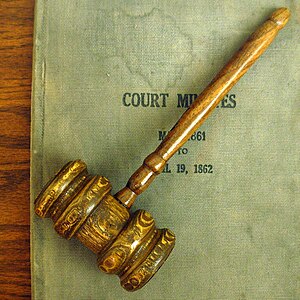
Last week we discussed the new qualifications for special education hearing officers. This week, I'm going to talk about how the new qualifications pertain to the education and training of hearing officers.
As I have mentioned in each post in this series, please note that I have a number of potential biases here. First, I am a hearing officer and/or a mediator for four states. Second, I do a lot of special ed law consulting for states. Third, I have conducted hearing officer trainings at national conferences, at regional trainings and for a number of individual states. I have trained hearing officers from every state. I have definite opinions here and my business interests could color my thinking. Although I do not believe that these interests affect my opinions, please keep this disclosure in mind.
As I have mentioned in each post in this series, please note that I have a number of potential biases here. First, I am a hearing officer and/or a mediator for four states. Second, I do a lot of special ed law consulting for states. Third, I have conducted hearing officer trainings at national conferences, at regional trainings and for a number of individual states. I have trained hearing officers from every state. I have definite opinions here and my business interests could color my thinking. Although I do not believe that these interests affect my opinions, please keep this disclosure in mind.
The changes in the qualifications for hearing officers are significant. The fact that the Congress changed this section of the law signals that it has at least some concern about the quality of hearing officers.
In the most recent post in this series I described the qualifications for hearing officers added by the 2004 reauthorization of IDEA: the knowledge and ability to conduct hearings in accordance with standard legal practice; the knowledge and ability to write decisions in accordance with standard legal practice; knowledge of and ability to understand special education law.
State education agencies who train and hire hearing officers should be mindful of these changes. Those who train hearing officers should be people who have experience in conducting due process hearings and in writing decisions thereafter to be sure that the state's hearing officers are taught how to do so in accordance with standard legal practice. This new practical component is at least as important as an update on the law. New hearing officers should be able to cite prior experience in using these skills. OSEP has noted that pursuant to its general supervisory responsibility, each State Education Agency must ensure that its hearing officers are sufficiently trained to meet the new qualifications enumerated in IDEA. 71 Fed. Register No. 156 at page 46705 (August 14, 2006.)
In addition, I have heard from a number of states that OSEP monitoring visits are now focusing upon hearing officer training. State Education Agencies are being asked to explain and justify their trainings. They are also being asked to produce training agendas and the qualifications of trainers. All states should take a look at how they train their hearing officers and ask whether improvements might be needed.
Next week we will look at some of the many recent cases where state hearing systems have been sued by various stakeholders. We will also examine whether lawyers make better hearing officers.
In your experience, what has been the quality of the due process hearing officers you have encountered?
State education agencies who train and hire hearing officers should be mindful of these changes. Those who train hearing officers should be people who have experience in conducting due process hearings and in writing decisions thereafter to be sure that the state's hearing officers are taught how to do so in accordance with standard legal practice. This new practical component is at least as important as an update on the law. New hearing officers should be able to cite prior experience in using these skills. OSEP has noted that pursuant to its general supervisory responsibility, each State Education Agency must ensure that its hearing officers are sufficiently trained to meet the new qualifications enumerated in IDEA. 71 Fed. Register No. 156 at page 46705 (August 14, 2006.)
In addition, I have heard from a number of states that OSEP monitoring visits are now focusing upon hearing officer training. State Education Agencies are being asked to explain and justify their trainings. They are also being asked to produce training agendas and the qualifications of trainers. All states should take a look at how they train their hearing officers and ask whether improvements might be needed.
Next week we will look at some of the many recent cases where state hearing systems have been sued by various stakeholders. We will also examine whether lawyers make better hearing officers.
In your experience, what has been the quality of the due process hearing officers you have encountered?
